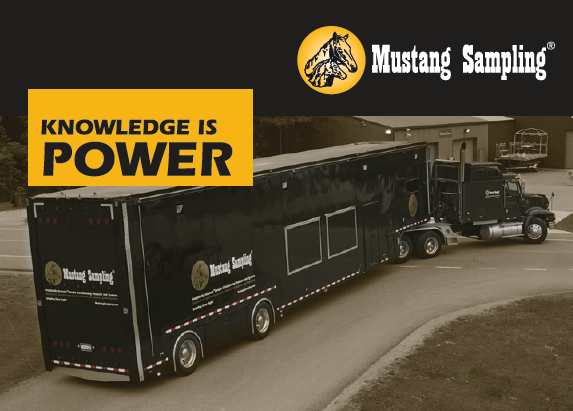Unlocking the strength of a transformed workforce with customized training could bring back lost knowledge, trigger much-needed change and redefine training in the natural gas industry.
The past two years have greatly impacted the developmental processes in organizations, not only through changes in form and methodology necessitated by the pandemic, but subject matter as well. A decline in employee engagement and increase in fatigue with the use of multiple online development initiatives has accompanied this period. Training should have specific goals — for example, to increase the personal effectiveness of employees through the use of new systems and better methodologies that develop the expertise and potential of the employee. Mustang Sampling has seen a significant increase from companies taking an interest in bespoke, hands-on training using its Mobile Training Lab (MTL) to help train newly acquired talent and prevent career stagnation.
Historically, the Mustang MTL attended multiple industry conferences and trade shows as part of exhibitions, but a paradigm shift occurred during the pandemic. The Mobile Training Lab took an extensive 10-month road trip across the U.S. in 2021, where the MTL could be found at various companies within the natural gas industry that desired specific training at their locations. On top of the extensive road trip, companies in the natural gas industry began requesting bespoke mobile training labs filled with products and systems specific to their industrialized buildings and sampling systems.
Building bespoke training is not a new endeavor for Valtronics and Mustang Sampling, but the “who,” “where”and “how” that training is conducted has shifted. For the past five years, Valtronics and Mustang Sampling have been working closely with universities and technical colleges in the regions where energy transformation is occurring, while seeing a shortage of skilled technicians at the same time. To keep up with this paradigm shift, the curriculum has moved toward implementing hands-on, real-world experience where students are taught how to properly operate process units and measurement skids. The units/skids are equipped with various products and systems, including pneumatic pressure and temperature controls, Coriolis meters, ultrasonic meters, smart level and pressure transmitters, liquid process control valves, Mustang® Sample Conditioning Systems, and dozens of other commonly found components and systems that reflect a real-world scenario.
The pandemic has contributed to the need of modernizing existing offerings for development in corporations and organizations in order to foster a culture of continuous learning. In this new reality, an agile approach to employee development can become the new norm. Organizations are realizing their use of e-learning has peaked and understand its limitations. Employees in the natural gas industry typically battle with excessive specialization or role-based silos due to the inability of having access to training on products such as gas chromatographs, analyzers and sample conditioning systems. The ability to have a bespoke Mustang Mobile Training Lab that can travel between facilities allows companies to build skillsamongst its employees. The key advantage of incorporating collaborative technologies into the learning environment is employees are able to have constant accessibility to products and systems with the exact engineering specs they are working with in the field.
The pandemic continues to challenge the way work gets done in the natural gas industry. Retaining top employees and tackling the challenge of an aging workforce is of the utmost concern for the natural gas industry. It is important to engage and retain a tenured workforce because there is already an identified gap of knowledge loss within the industry. The natural gas industry has seen a decline in the basic understanding of natural gas, the role it plays, how it works, and how to maintain systems and pipelines. It is important for companies to focus on building a stronger workforce to reinforce a sense of belonging in the younger generation by initiating experiential programs and hands-on training.
